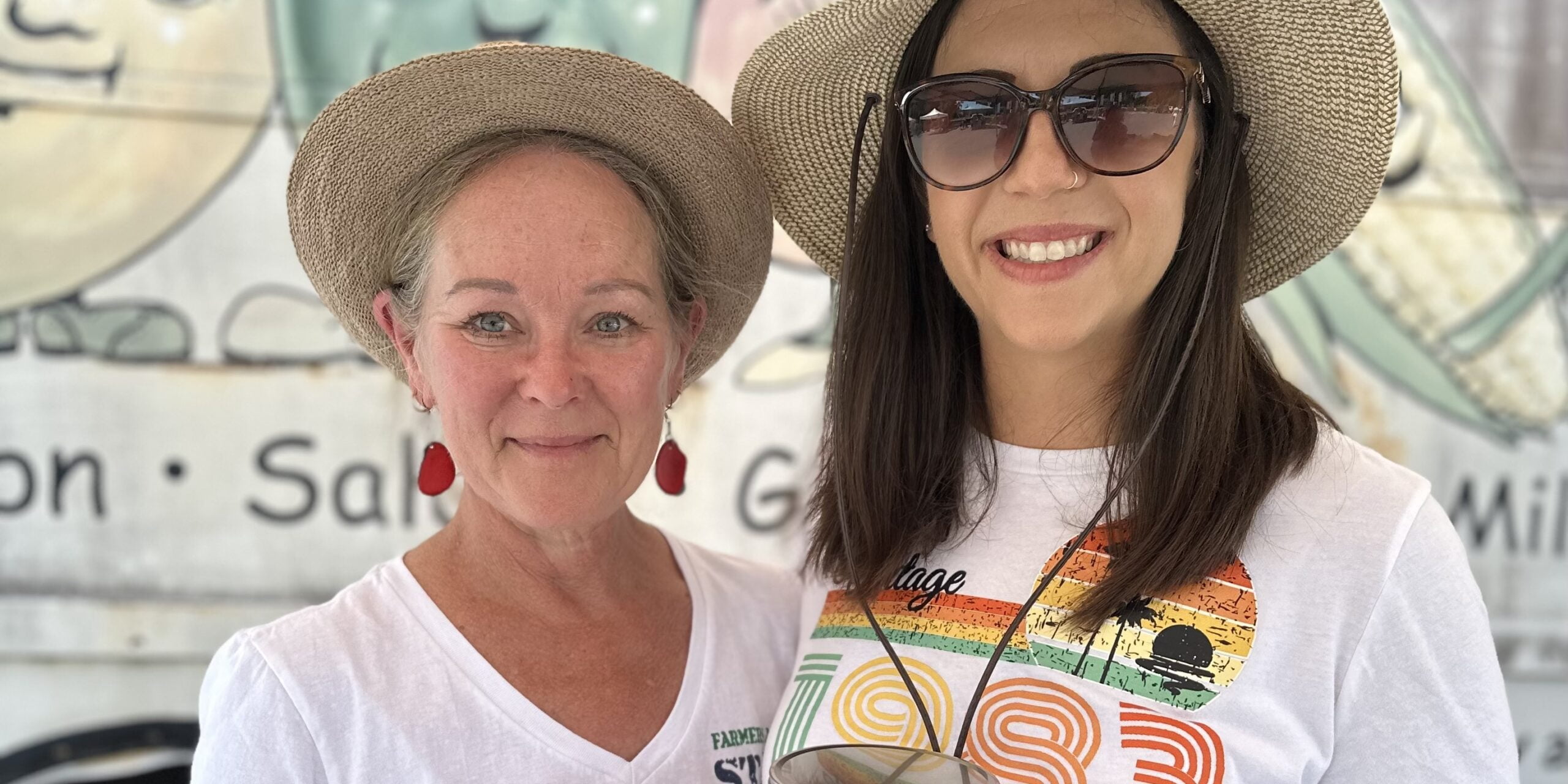Dawn Jordan, on the left, is the Agricultural Economic Development Director for Polk County, which has coordinated the NC Foothills Farm Tour as well as homestead tours in the county for many years. This year, Polk County will instead be part of ASAP’s Farm Tour! (Look for announcement of farms and other cluster areas in mid July!) We chatted with Dawn about the evolution of farm tours in Polk County, as well as her unique role in government.
Tell me about your role.
It is a very unique position. I am part of the Polk County government. About 15 years ago, Polk County did a farm preservation and protection policy plan. From that, they found that the need for economic development in agriculture was important, and they hired an Agricultural Economic Development Director—the very first one in the state. That was Lynn Sprague, and he did a lot of good work bringing attention to agriculture in the community. I always say he woke up a sleeping giant of ag that’s not going back to sleep. He moved on and I took on the role in 2013.
I do a lot of connecting the dots. That may be something as simple as, “Where can I get a chicken plucker?” or something bigger like, “Hey, Dawn, I had a sale fall through and now I have 10 gallons of organic blueberries. What can I do with them?” In most areas, Cooperative Extension is the first resource for farmers, but their role is more in technical assistance. We’re working with small businesses from an economic development standpoint.
What does farming look like across Polk County?
The western part of North Carolina is different than the eastern areas. The farms in Polk are small. We just don’t have the land mass for large commercial businesses. But there are lots of smaller farms doing everything from hay to corn to vegetables. What I’m seeing now is an uptick in homesteading situations. People are growing for themselves and have extra and are looking for outlets to sell that. Typically their first stop is the farmers market, where they are learning about consumer demand in the area, how to present their product, how to talk about what is unique about their product, and maybe learning value-added steps they can take with their products. Farmers markets are incubator spaces.
Your office operates two farmers markets, Columbus Farmers Market and Saluda Tailgate Market.
The farmers markets came under my department in 2019 and 2021. They were previous run by the Business Association and volunteers who were aging out. Farmers markets really allow for consumer education—what’s seasonal, what’s available, what’s not. We had somebody this week looking for green peanuts. We talked about how this is not the best environment for peanuts. Consumers these days don’t always know how to cook with fresh product, but farmers can educate on what you can do.
What has the NC Foothills Farm Tour been like in past years?
We’ve had farm tours for 15 years. My predecessor started that. I was actually on the second tour as a farmer—that’s how I got engaged with this arena of agricultural economic development. After a couple of years, we saw a need to expand the tour. We wanted to rotate the farms on the tour—just like ASAP’s Farm Tour. In 2018 we made a connection with Rutherford County Cooperative Extension and partnered to have both counties on the tour. In 2020, we offered a virtual farm tour with both counties.
There’s a great variety of farms in Polk and Rutherford and people enjoy seeing unique farms. One that comes to mind is our garlic farm. We had a couple of ladies who grew every variety of garlic you could think of, and they really did know everything you could possibly know about garlic. I said, “You need to be on our farm tour!” They said, “But we just grow garlic.” I said, “Exactly.” It was the most popular stop on the tour, because it was so unique.
In 2023, we did a smaller homestead tour in Polk County, which was well received. People seem to really enjoy that aspect, learning about homesteads. We’re hoping by having Polk and Rutherford as part of ASAP’s Farm Tour we can also continue to do a separate homestead tour, maybe in the spring.
What was your farm on the tour? Are you still farming?
It was called Restoration Farm. It’s really on the back burner right now. I’m too busy with this other job! I do have about 60 chickens in the back yard, though.

